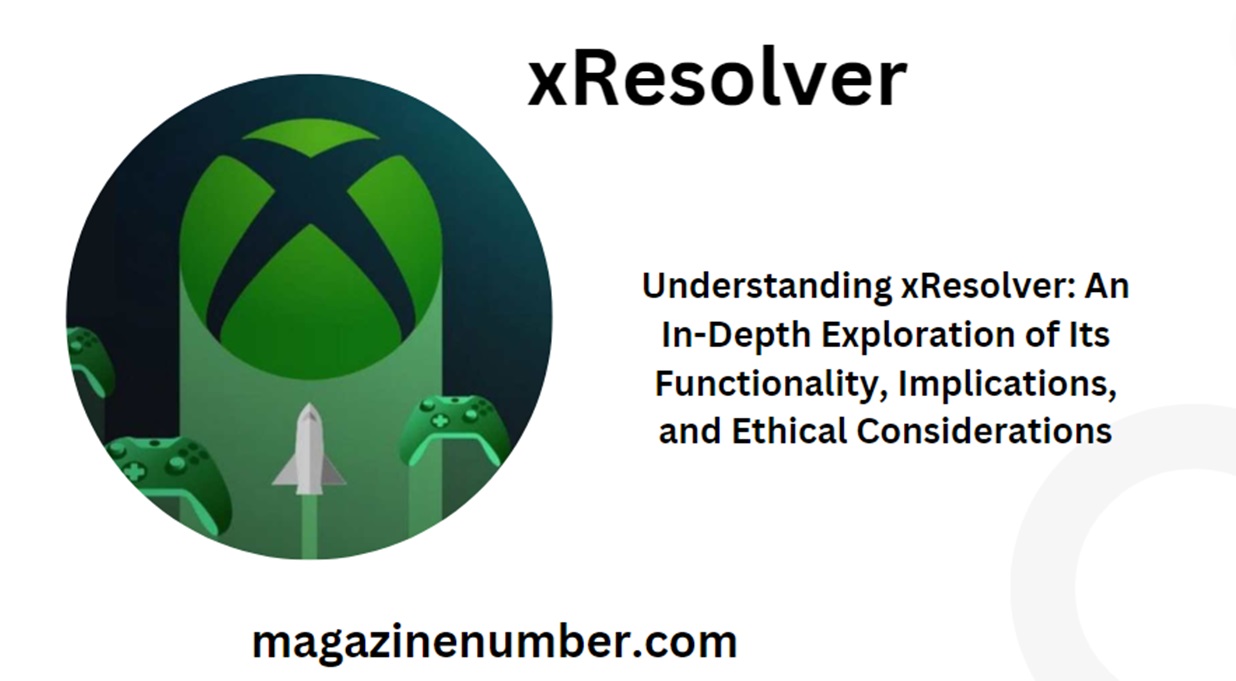Introduction
In the ever-evolving landscape of digital gaming, platforms such as Xbox Live and PlayStation Network have become integral parts of the gaming experience, connecting millions of players worldwide. With this connectivity, however, come new challenges and concerns, particularly regarding privacy and security. One such concern that has garnered significant attention is xResolver. This article aims to provide a comprehensive examination of xResolver, exploring its functionality, implications, and the ethical considerations surrounding its use.
Table of Contents
What is xResolver?
xResolver is a website that claims to provide a service for resolving gamertags and usernames from various gaming platforms to IP addresses. Essentially, it allows users to input a gamertag or username and retrieve the associated IP address. This capability has led to xResolver being a focal point of controversy within the gaming community due to its potential misuse.
How Does xResolver Work?
To understand xResolver, it is essential to grasp the basics of IP addresses and their role in online gaming. An IP (Internet Protocol) address is a unique string of numbers that identifies each device connected to the internet. When gamers play online, their devices communicate with gaming servers and other players’ devices, exchanging data packets that include IP addresses.
xResolver and similar services function by capturing these IP addresses during online gaming sessions. This process often involves network sniffing tools that intercept data packets traveling over the network. Once the IP address is captured, it can be stored and linked to a specific gamertag or username.
The core functionality of xResolver involves:
- Data Collection: Using network sniffing tools, individuals capture IP addresses during online gaming sessions.
- Database Storage: These IP addresses are stored in a database alongside the corresponding gamertags or usernames.
- IP Resolution: Users can then visit the xResolver website, enter a gamertag or username, and retrieve the associated IP address from the database.
The Implications of Using xResolver
While xResolver’s technical functionality is straightforward, its implications are far-reaching and often troubling. The ability to resolve gamertags and usernames to IP addresses can lead to several negative outcomes, particularly regarding privacy, security, and ethical concerns.
Privacy Concerns
One of the most significant implications of xResolver is the violation of privacy. IP addresses can reveal sensitive information about an individual’s online activities and, in some cases, their geographic location. By linking IP addresses to specific gamertags or usernames, xResolver exposes gamers to potential privacy breaches.
Security Risks
The exposure of IP addresses through xResolver can lead to various security risks, including:
- DDoS Attacks: Distributed Denial of Service (DDoS) attacks involve overwhelming a target’s IP address with excessive traffic, causing their internet connection to become slow or entirely unavailable. Gamers targeted in this way may find themselves unable to play online, participate in voice chats, or access other online services.
- Swatting: In extreme cases, the knowledge of an IP address can be used to approximate a victim’s physical location. This information can then be misused in “swatting” attacks, where false emergency calls are made to law enforcement, prompting a dangerous and unnecessary response to the victim’s address.
Ethical Considerations
The ethical implications of using xResolver are profound. Engaging with or supporting such services often involves violating the privacy and security of others, which is generally considered unethical. The potential for abuse, harassment, and harm is significant, raising important questions about the responsible use of technology in the gaming community.
The Legal Landscape
The legality of xResolver and similar services varies by jurisdiction, but many of the activities associated with them can be illegal. Key legal considerations include:
- Privacy Laws: Many countries have strict privacy laws that protect individuals’ personal information, including IP addresses. Collecting, storing, and distributing IP addresses without consent may violate these laws.
- Computer Misuse: Activities such as DDoS attacks and swatting are illegal in many jurisdictions. Using xResolver to facilitate these attacks can lead to severe legal consequences, including fines and imprisonment.
- Terms of Service Violations: Gaming platforms like Xbox Live and PlayStation Network have terms of service agreements that prohibit activities such as IP sniffing and harassment. Users caught engaging in these activities can face account bans and other penalties.
Community Response and Mitigation Strategies
The gaming community’s response to xResolver has been mixed, with some individuals condemning its use and others exploiting it for personal gain. To mitigate the risks associated with xResolver, several strategies can be employed:
Education and Awareness
Raising awareness about the risks and ethical implications of using services like xResolver is crucial. Educating gamers about the importance of online privacy and security can help foster a more responsible and respectful gaming environment.
Enhanced Security Measures
Gamers can take several steps to protect their IP addresses and reduce the risk of being targeted by services like xResolver, including:
- Using VPNs: Virtual Private Networks (VPNs) can mask a user’s real IP address, making it more difficult for attackers to locate and target them.
- Network Configuration: Configuring home networks with robust security settings, such as firewalls and encryption, can help prevent unauthorized access to network data.
Platform Enforcement
Gaming platforms can play a significant role in mitigating the risks associated with xResolver by enforcing their terms of service and implementing technical measures to protect users’ privacy. This might include:
- IP Address Masking: Implementing server-side IP address masking can prevent users from capturing each other’s IP addresses during online gaming sessions.
- Stronger Penalties: Imposing stricter penalties for users caught engaging in activities such as IP sniffing and harassment can deter potential offenders.
Alternatives and Ethical Considerations
While xResolver and similar services raise significant ethical and legal concerns, it is important to consider the broader context of online gaming and the need for legitimate tools and services that enhance the gaming experience. Some potential alternatives and ethical considerations include:
Legitimate Network Tools
Network diagnostic tools can be valuable for troubleshooting connectivity issues and optimizing gaming performance. However, these tools should be used responsibly and ethically, respecting the privacy and security of others.
Community Building
Fostering a positive and respectful gaming community can help reduce the demand for services like x Resolver. Encouraging good sportsmanship, empathy, and mutual respect can create a healthier and more enjoyable gaming environment.
Conclusion
xResolver represents a complex intersection of technology, privacy, security, and ethics in the digital gaming landscape. While its functionality may appeal to some, the potential for abuse and harm cannot be overlooked. By understanding the implications of x Resolver and promoting responsible use of technology, the gaming community can work towards a safer and more respectful online environment. As with any technological tool, the key lies in balancing innovation with ethical considerations, ensuring that the benefits of connectivity do not come at the expense of privacy and security.
Read our blogs at Magazine Number.



